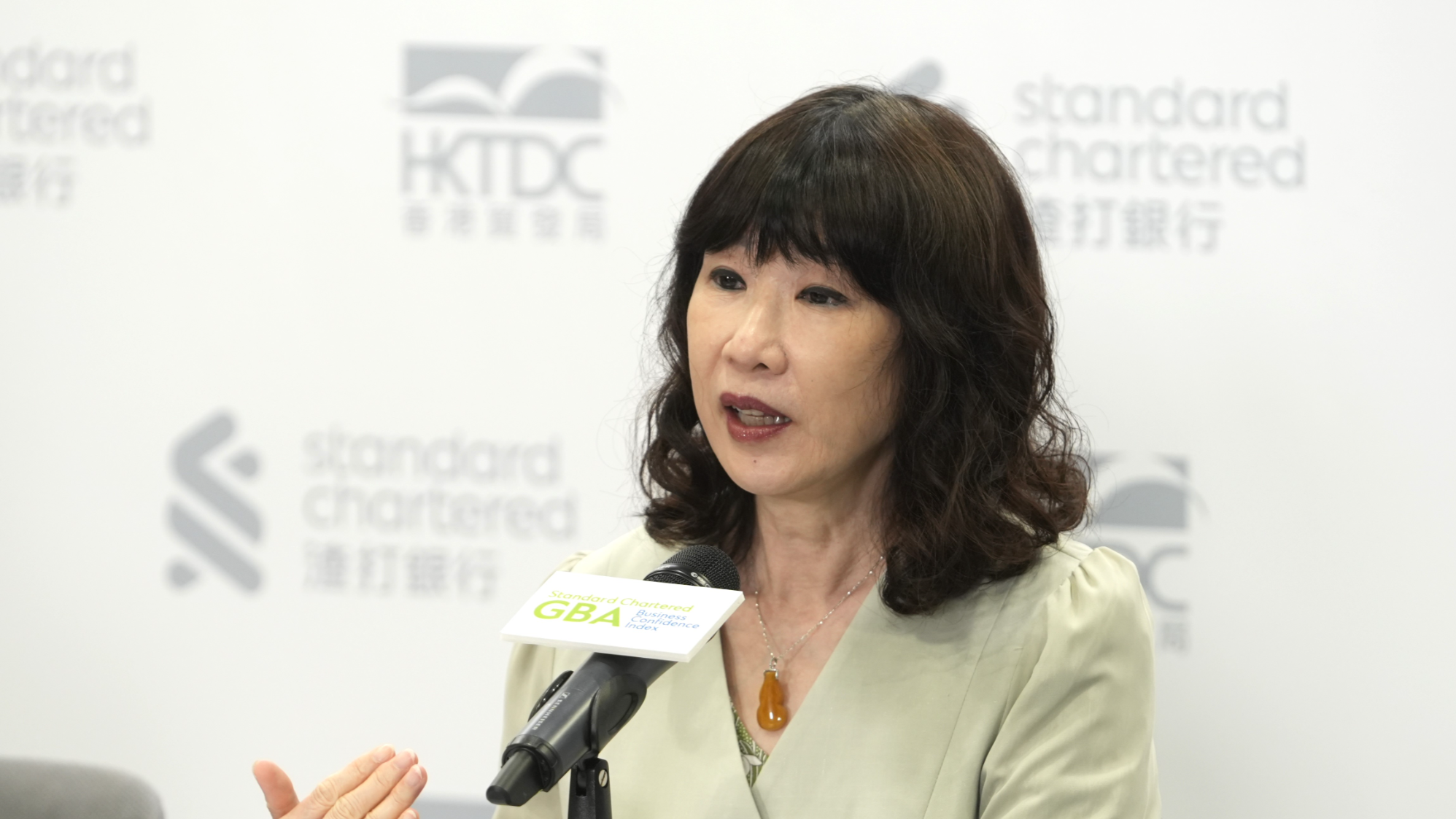
Accelerated production in the second quarter among companies in the Guangdong-Hong Kong-Macao Greater Bay Area (GBA) has driven their resilient business performance after the shock of the US’ so-called US “Liberation Day” tariffs.
The Standard Chartered Greater Bay Area Business Sentiment Index (GBAI) showed on Wednesday that “current performance”, one of the two main GBAI indexes that measure business activities, dropped marginally to 53.1 in the second quarter from 53.5 in the first quarter, while “expectations”, another main index, fell to 52.0 from 54.3.
Conducted jointly by the Hong Kong Trade Development Council (HKTDC) and Standard Chartered, the quarterly survey interviewed over 1,000 companies operating in the Greater Bay Area. A GBAI of 50 signifies a neutral position, while above 50 reflects optimism, and below 50, pessimism.
The slight change of “current performance” in the second quarter is attributed to the strong performance of “production and sales”, rising 4.2 points to 57.1. It supports the narrative during the 90-day delay in implementing the US “reciprocal tariffs” on China, which began on May 12.
However, the “expectation” index showed a more cautious view of the GBA business, with a 2.3-point drop. And the survey noted that the 52.0 points mark the weakest level since the fourth quarter of 2022.
Given “the uncertain business outlook in the second half”, especially regarding the outcome of bilateral trade deals between China and the US after the 90-day pause, the drop could be explained as an overall trend, said Kelvin Lau, senior economist of Greater China and North Asia at Standard Chartered.
In terms of the effect of doing business, 41 percent of the respondents said US tariff hikes would delay the implementation of their business plans.
Other major effects include “difficult to navigate high level of logistical or customs uncertainty” and “losing business to other markets with lower tariff impact”.
“In response to this new era of US trade policy, GBA companies seek to increase domestic sales and expand to key markets in the region, in particular the Association of Southeast Asian Nations (ASEAN),” said Irina Fan, the HKTDC’s director of research.
Meanwhile, the US government plans to increase tariffs on Southeast Asian countries, as announced on July 8.
The move would result in higher US tariffs on those countries than those imposed on China, and would make entrepreneurs more hesitant when making factory location decisions, Fan said.
Contact the writer at thor_wu@chinadailyhk.com


